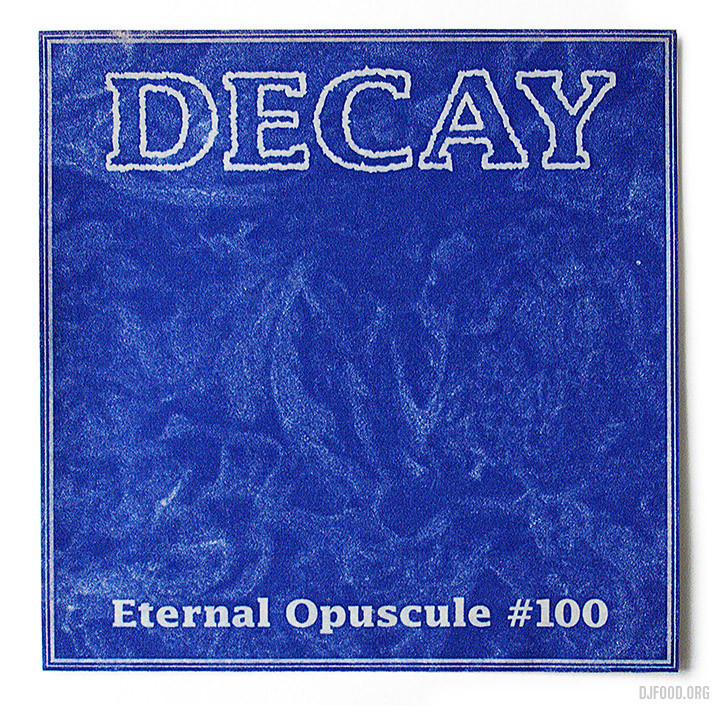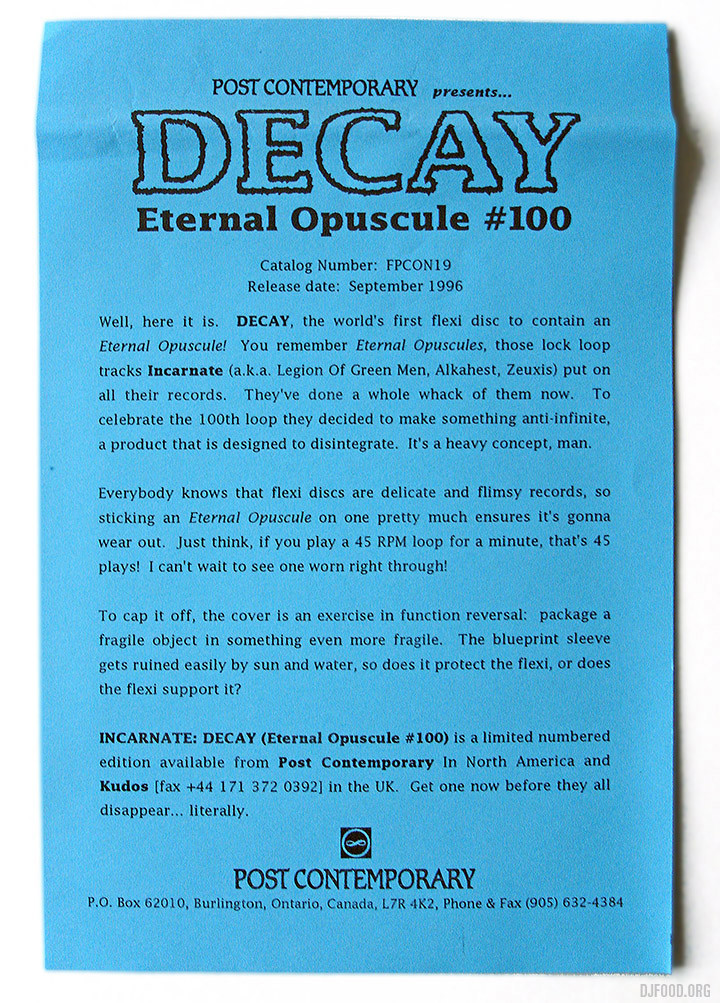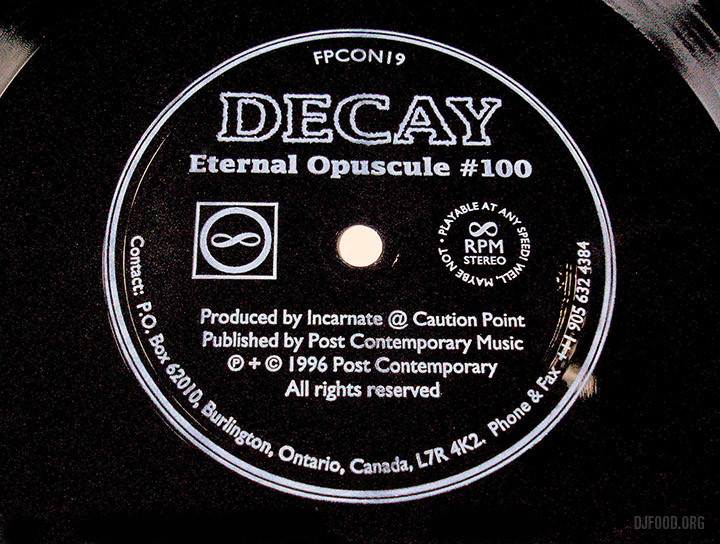
Post Contemporary was/is the home of The Legion of Green Men out of Toronto, Canada – Alexander “Lex” Addicus and Rupert “Ru” J. Lloyd, who also recorded under many other aliases for the label. We did several gigs with them back in the good old 90s and they gave me a copy of this at one of them. The group frequently included ‘lock grooves’ at the end of their records, a technique where the cutting engineer makes the final groove on the record into a continuous one rather than the spiral the rest of the disc plays through thus endlessly locking the needle into a repeat cycle. To get a rhythmic lock groove that repeats cleanly rather than jumping as the needle turns a full rotation the tempo needs to be 133 1/3bpm (or divisions thereof) when played at 33rpm (180bpm at 45 vinyl fans).
At the end of the track on this disc, ‘Decay’, they put their one hundreth lock groove – or ‘eternal opuscule’ as they called them with the idea that the low quality flexi would slowly wear if left playing and thus slowly change the sound. The concept also extended to the sleeve material too which was printed on photo-sensitive blueprints that would also decay if left in sunlight – see below for their full explanation from the sleeve and insert.

Here’s the audio – the ‘eternal opuscule’ (or loop to you and me) starts around the 2.30 min mark. Earlier this year, after releases on Post Contemporary had ceased in 2007, a new 2xCD 20th anniversary version of the Legion of Green Men‘s ‘Spatial Specific’ album suddenly arrived. The original was released in 1994 on Ritchie Hawtin‘s Plus 8 Records and the new ‘Redux’ has many more tracks and ‘eternal opuscules’ as well as a transparent overlay that produces moire effects when rotated with the inner artwork.

